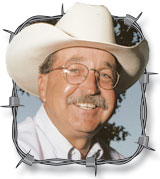Horses, horses everywhere.
And very few to harness.
Walking Horses, Fox Trotters, Quarter Horses, Standardbreeds and hybrids of them all fill the pastures and the stables these days.
And all very well.
But I miss those stubborn old Percherons and Belgians and Clydesdales – and hybrids of them all – even though they used to tax my patience.
Everytime I pour that liquid gold into a tractor gas tank, I really miss them.
Ah, how we cursed those stubborn old beasts when we had to work them. And how we think we would like to return to the time draft horse was king of the farm.
His were the choice ears of yellow dent, the fattest oats, the brightest timothy hay. His stalls were cleaned and bedded with wheat straw, although you might let the cow stalls go a day or so. And a currycomb and brush had special pegs beside the harness racks.
Can it be that you could actually determine the character of the man, the farmer, by the appearance of his team, by whether or not he worked horses or mules?
As we look back, we seem to sense that in general, the men who worked horses were the ones who were happiest; maybe happy-go-lucky is the word. Anyhow, the mule men always appeared a little more grim, distant, more dedicated to dawn to dusk labor than the horse farmer. The horse man sometimes roached the manes and trimmed the tails of his animals; but the mule man always roached the manes and trimmed the tails of his beloved animals.
At the feed mill or around the store, you could always count on a good story from a horse farmer. The mule man drove in with his wagon, unloaded his cargo, loaded back up and after saying his howdy-dos and good-days, jangled off down the road, anxious to get back to work.
There were good things about working horses you miss today. If you were shy on money – and who wasn’t – you didn’t have to charge 20 gallons of gasoline to get a day’s plowing done.
If you were working a mile from home in a field hidden from sight of all but a few groundhogs and a soaring buzzard, you were never lonesome. There was always Old Queen or Old Nig to pet and to hear you. And they talked back, too, in language only a horseman could understand.
They always appreciated a choice handful of clover you plucked for them, or the kernels of corn you shelled out – not that they couldn’t do their own shelling, you just did it for them to show your appreciation.
When you unhitched on the far side of the place, you could even, if you were of a mind, lie down on those broad flat backs, turn them loose and daydream all the way to the house. But watch out when they got close, for they’d start running and like as to not break down fences and gaps in their hurry.
Maybe the most pleasant part was unharnessing them after a long day, seeing them immediately head for the pasture and roll over, first one way, then the other, messaging themselves from the salty sweet of their spent energy, getting up and shaking so hard you could hear the rippling of their hide, then trotting off to drink from the pond, to graze and sleep through another night and be ready for another dose of work the next day.
Sure, they were slow, relatively unproductive. When tractors came along, millions of tons of forages and feed grains were freed for cattle, hogs and poultry. This, in part, was responsible for the tremendous surpluses of grains in the 50’s and 60’s and 70’s. No one happened to think that tractors were not going to consume what the horses had been eating, that the grains were going to flood the markets.
Would we want to go back to them?
It was bone-grinding work that got you out of bed before daylight and kept you going until dusk, if you were to get anything done, first you had to set aside their own hay and grain before there was any for the cattle and hogs and chickens, before, in fact, there was anything for the family.
Mankind rode horses from the swamps and jungles and deserts of the past into the modern world and then, like an unfaithful lover, cast them aside for a glamorous mechanical wench.
Would I go back to them? I hate myself. But I love my car and tractor.






